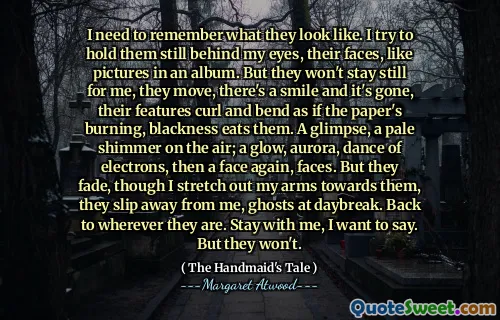Night falls. Or has fallen. Why is it that night falls, instead of rising, like the dawn? Yet if you look east, at sunset, you can see night rising, not falling; darkness lifting into the sky, up from the horizon, like a black sun behind cloud cover. Like smoke from an unseen fire, a line of fire just below the horizon, brushfire or a burning city. Maybe night falls because it's heavy, a thick curtain pulled up over the eyes. Wool blanket.
The passage reflects on the contrasting imagery of night and day, questioning why night is described as "falling" rather than "rising." This choice of words evokes feelings of heaviness and obscurity, suggesting that night encompasses and engulfs the world in a daunting manner. The metaphor of a thick curtain emphasizes the idea of darkness as something that covers and conceals, contributing to a sense of foreboding.
Additionally, the imagery of sunset reveals the idea of night rising from the horizon, likening it to smoke or fire, which introduces a different perspective. This perspective highlights the transformative nature of evening, as darkness ascends like an unseen force, carrying the weight of a burning city or a brushfire. The interplay of light and shadow, along with the emotional implications of these transformations, underscores the complex feelings associated with the transition from day to night in Atwood's narrative.






